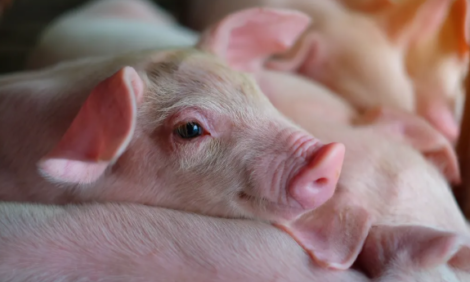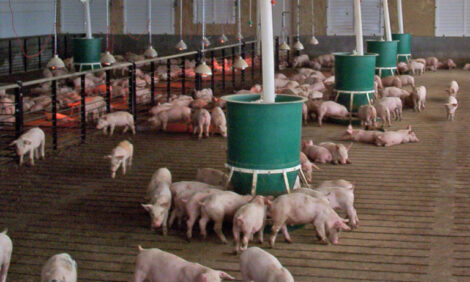



Health Issues and Pork Consumption
The pig meat industry needs to highlight the positive nutrients in meat and communicate that pork is nutrient rich, writes ThePigSite senior editor, Chris Harris.Speaking at the recent World Pork Conference in Qingdao, China, Mary Ann Binnie, the manager of Nutrition and Food Industry Relations for the Canadian Pork Council, said that the industry needs to invest in research to generate positive messages about meat in the face of attacks by the anti-meat-eating lobby.
She said the industry has to spell out that there are a lot of nutrients in meat and pig meat for relatively few calories.
And the industry has to focus on the role of meat protein in weight management and satiety.
"There is a lot of research out there that is very positive," said Ms Binnie.
"It is up to us to get the research that shows meat in a positive way."
Ms Binnie said the industry had recently been faced with another attack from the World Cancer Research Fund, when it republished and updated a report that had first been issued in 1997 linking red meat eating with colorectal cancer.
In 1997, the report said that red meat probably increases the risk and processed meat possibly increases the risk of getting colorectal cancer. It added that cooking meat at high temperatures also possibly increases the risk.
"The conclusion was to limit consumption to 80g a day" said Ms Binnie.
The report identified a number of mechanisms that could be associated with the risk, including the nitrates and nitrites in the processed products, heterocyclic amines (HCAs) from cooking at high temperatures such as frying and polycyclic aromatic hydrocarbons (PAHs) from cooking over a flame and charring.
Apart from recommending eating less meat at the time the report also said that the meat should not be charred and low temperature cooking should be used.
It also recommended not to eat meat cooked directly over a flame and not to eat cured or smoked meats.
In the updated report, Ms Binnie said the WCRF had changed its opinion and claimed that "red meat is a convincing cause of colorectal cancer".
In 2007, it recommended that consumption should be limited to 500 grams a week or 71 grams a day. Two years later, the WCRF reduced the consumption recommendations down to 300 grams a week and very little of this should be processed.
"The major concern is the long-term impact on the industry," said Ms Binnie.
However, she said that other organisations had started to find holes in the research.
An editorial in the American Journal of Clinical Nutrition detailed omissions and errors in the red meat and colorectal cancer section, she said, and the World Health Organisation has said that they should not look at individual foods but at food patterns.
And she added that the Annals of Oncology had said: "The substantial review of the evidence of the WCRF report demonstrates that there is no discernable association between many forms of cancer and specific dietary practices.
"There are still some very interesting hypotheses to pursue, such as the value of an approach on the basis of food patterns rather than individual foods and nutrients, but the cupboard is remarkably bare."
Ms Binnie said that there is a significant error that dramatically and incorrectly overestimates risk associations for red meat and colorectal cancer by a factor of seven.
"Specifically the error in the forest plot states it is based on services 'per time/week" as opposed to the correct notation of 'servings per day'."
She said that the information in the report had been used by campaigners to launch fierce attacks on the meat industry – particularly in the USA.
However, she said the industry should be bracing itself and preparing counter measures to stress the benefits of eating meat.
They should be working to develop the image as a functional food, with attributes such as omega-3 and selenium in pork.
She said there needs to be more research and investigations need to take place over changing the fatty acid profile of meat.
The also needs to be action to reduce salt in value-added and processed meats and pork should be promoted as naturally low in sodium.
"Consumers are looking to get more than just a fuel supply, they want the value added factor," she said.
"There are a lot of opportunities we can collaborate on. We have a very nutritious product and we need to focus on the research and the policy issues surrounding it."
October 2009








